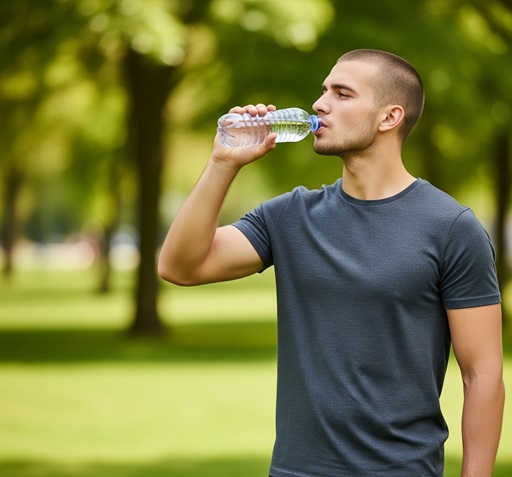
Diabetes Management
Hydration
Overview
Hydration plays a critical role in overall health, but it becomes even more essential in individuals with diabetes. Proper fluid balance directly affects blood glucose regulation, kidney function, insulin efficiency, and the body’s ability to manage complications related to diabetes. Both hyperglycemia (high blood sugar) and dehydration can feed into a dangerous cycle, making effective diabetes control more difficult.
Hydration is a powerful but often overlooked tool in diabetes management. Drinking enough water supports blood sugar control, reduces complications, and improves quality of life. For people living with diabetes, maintaining proper hydration is not just a healthy habit, it’s a vital part of their daily self care routine.
The Link Between Hydration and Blood Sugar
1. How High Blood Sugar Causes Dehydration
When blood sugar levels rise, the kidneys work harder to remove the excess glucose from the blood through urine. This leads to:
- Increased urination (polyuria)
- Loss of fluids and electrolytes
- Dehydration if fluids are not replaced
This is why thirst and frequent urination are classic symptoms of uncontrolled diabetes.
2. How Dehydration Raises Blood Sugar
When the body is dehydrated:
- Blood becomes more concentrated, causing relative increases in blood glucose levels
- Insulin becomes less effective at transporting glucose into cells
- Hormones like vasopressin are released, which can increase blood sugar
This creates a vicious cycle: high blood sugar leads to dehydration, and dehydration worsens high blood sugar.
Benefits of Staying Hydrated with Diabetes
1. Better Blood Sugar Control
Drinking enough water helps:
- Dilute blood glucose concentrations
- Improve insulin sensitivity
- Support stable glucose levels throughout the day
2. Kidney Protection
Diabetes increases the risk of kidney damage (diabetic nephropathy). Hydration helps by:
- Supporting efficient kidney filtration
- Reducing buildup of waste products
- Helping flush out excess glucose and toxins
3. Improved Digestion and Metabolism
- Prevents constipation, which is common in people with diabetes
- Supports cellular metabolism, energy regulation, and proper nutrient absorption
4. Reduced Risk of Diabetic Ketoacidosis (DKA)
In Type 1 diabetes, dehydration can worsen or trigger DKA, a life threatening condition. Staying hydrated helps:
- Prevent excessive accumulation of ketones
- Maintain electrolyte balance
5. Supports Weight and Appetite Control
- Drinking water before meals can reduce overeating
- Sometimes, thirst is misinterpreted as hunger, leading to unnecessary calorie intake
Hydration Tips for People with Diabetes
How Much Water Should People with Diabetes Drink?
Aim for at least 8–10 cups of water per day and increase intake if you’re active or experiencing high blood sugar.
For people with diabetes, hydration needs may increase due to:
- Frequent urination
- High blood sugar
- Physical activity
- Heat and humidity
Do’s:
- Drink water regularly, don’t wait until you’re thirsty
- Carry a refillable water bottle
- Include herbal teas or flavored water (unsweetened) if you need variety
- Monitor urine color, pale yellow is ideal
Avoid:
- Sugary drinks (e.g., soda, juice, sports drinks)
- Caffeinated drinks in excess, they can act as diuretics
- Alcohol, which dehydrates and affects blood sugar levels
Signs of Dehydration to Watch For
- Dry mouth or lips
- Dark colored urine
- Dizziness or fatigue
- Muscle cramps
- High blood sugar readings
- Rapid heartbeat or headache

